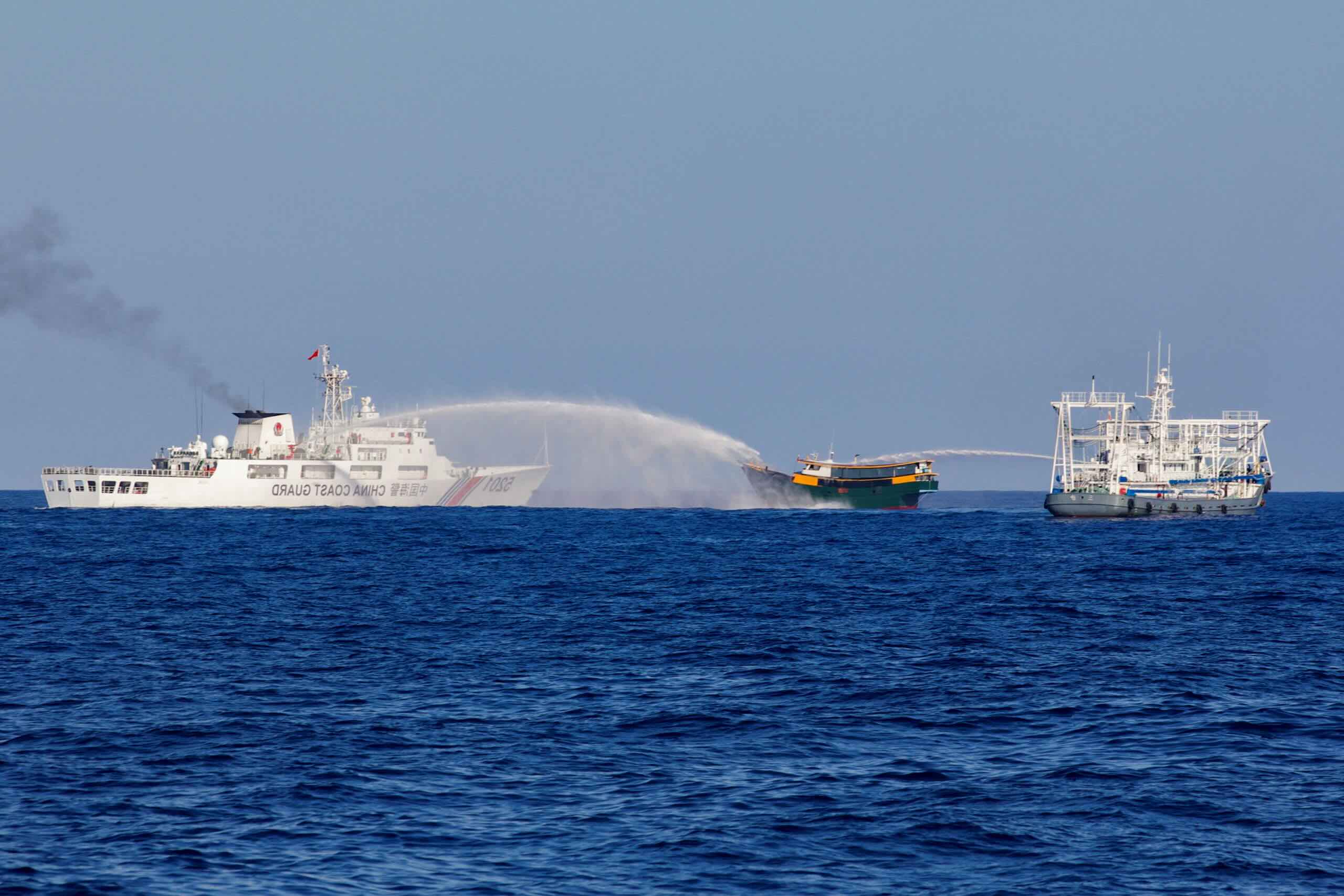
Why are the South China Sea disputes escalating? The South China Sea, a critical maritime region, has become a hotspot for territorial disputes. Countries like China, Vietnam, the Philippines, Malaysia, and Brunei all claim parts of this sea. The area is rich in natural resources, including oil, gas, and fish, making it highly valuable. China's construction of artificial islands and military installations has heightened tensions. Freedom of navigation is another major issue, as many nations rely on these waters for trade. International laws, such as the United Nations Convention on the Law of the Sea (UNCLOS), aim to manage these disputes, but enforcement remains challenging. National pride and strategic interests further complicate the situation, making peaceful resolution difficult.
Historical Background
Understanding the South China Sea disputes requires a look into the past. This region has a rich history that shapes current tensions.
- The South China Sea has been a crucial maritime route for centuries, facilitating trade between Asia, Africa, and Europe.
- Ancient Chinese records from the Han Dynasty (206 BCE–220 CE) mention voyages to the South China Sea, indicating early Chinese interest in the area.
- During the Age of Exploration, European powers like Portugal and Spain navigated these waters, establishing trade routes and colonies.
- The name "South China Sea" was popularized by European explorers, though various countries have their own names for it.
Geopolitical Importance
The South China Sea is not just a historical relic; it holds immense geopolitical significance today.
- Approximately one-third of global shipping passes through the South China Sea, making it a vital artery for international trade.
- The sea is believed to hold vast reserves of oil and natural gas, with estimates ranging from 11 billion to 190 trillion cubic feet of natural gas.
- Fishing is another critical resource, with the South China Sea providing about 10% of the world's fish catch.
- The region is also a strategic military point, with several countries establishing naval bases and conducting military exercises.
Territorial Claims
Multiple nations lay claim to parts of the South China Sea, leading to complex disputes.
- China claims nearly the entire South China Sea, demarcated by the "Nine-Dash Line," a U-shaped line covering most of the sea.
- Vietnam contests China's claims, citing historical control over the Paracel and Spratly Islands.
- The Philippines argues for sovereignty over parts of the Spratly Islands and Scarborough Shoal, based on proximity and historical usage.
- Malaysia and Brunei also have claims, primarily focused on their continental shelves extending into the sea.
Legal Battles
The disputes have led to numerous legal confrontations and international rulings.
- In 2013, the Philippines filed a case against China at the Permanent Court of Arbitration in The Hague, challenging China's claims.
- The court ruled in favor of the Philippines in 2016, stating that China's Nine-Dash Line had no legal basis.
- China rejected the ruling, maintaining its claims and continuing its activities in the disputed areas.
- Other countries, including Vietnam and Malaysia, have also sought legal avenues to assert their claims.
Environmental Concerns
The South China Sea disputes have significant environmental implications.
- Overfishing is a major issue, with fish stocks depleting rapidly due to unregulated fishing practices.
- Coral reefs, essential for marine biodiversity, are being damaged by activities like dredging and island-building.
- Pollution from ships and oil exploration poses a threat to the marine ecosystem.
- Climate change exacerbates these issues, with rising sea temperatures and acidification affecting marine life.
Recent Developments
The situation in the South China Sea continues to evolve, with new developments occurring regularly.
- China has built artificial islands in the Spratly archipelago, equipping them with military facilities.
- The United States conducts "freedom of navigation" operations, sailing warships through contested waters to challenge China's claims.
- ASEAN (Association of Southeast Asian Nations) has been working on a Code of Conduct to manage disputes, though progress has been slow.
- In 2020, Malaysia submitted a claim to the United Nations to extend its continental shelf, sparking protests from China.
- The COVID-19 pandemic has not slowed down activities in the region, with countries continuing to assert their claims through various means.
Final Thoughts on South China Sea Disputes
The South China Sea disputes are a complex mix of territorial claims, economic interests, and strategic positioning. Countries like China, Vietnam, Philippines, and Malaysia all have stakes in this region, leading to ongoing tensions. The area is rich in natural resources like oil and gas, making it a hotbed for economic competition. Additionally, the sea lanes are crucial for global trade, adding another layer of importance.
Understanding these disputes requires looking at historical claims, international laws, and the geopolitical strategies of the involved nations. While the situation remains tense, efforts for diplomatic resolutions continue. Keeping an eye on this region is essential, as its stability impacts not just the surrounding countries but the world at large. The South China Sea will remain a focal point in international relations for years to come.
Was this page helpful?
Our commitment to delivering trustworthy and engaging content is at the heart of what we do. Each fact on our site is contributed by real users like you, bringing a wealth of diverse insights and information. To ensure the highest standards of accuracy and reliability, our dedicated editors meticulously review each submission. This process guarantees that the facts we share are not only fascinating but also credible. Trust in our commitment to quality and authenticity as you explore and learn with us.
